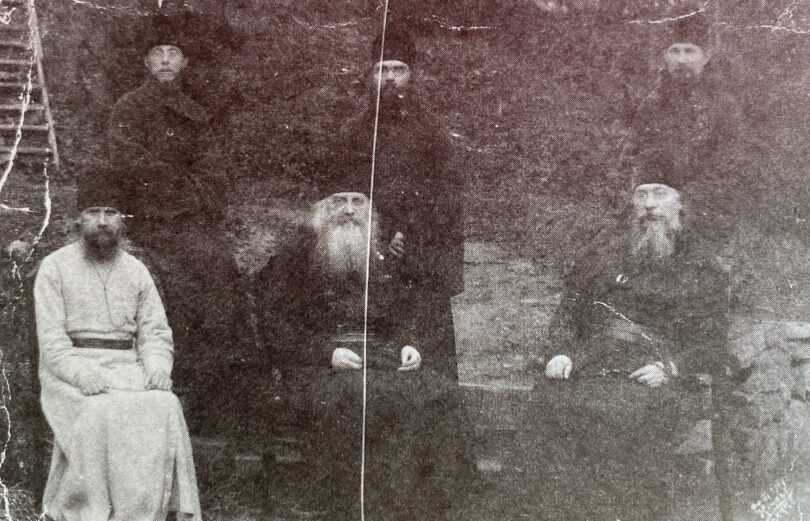Nikolai Krotkov was born in a priest’s family in Kostroma, in the Volga region. He became a priest and, after becoming a widower, he enrolled in Kiev Theological Academy. In the Lavra, Nikolai received his monastic tonsure. In 1907, Archimandrite Nikodim was consecrated a vicar bishop of Akkerman of the Diocese of Kishenev. In 1911, he became Bishop of Chyhyryn, the second vicar of the Diocese of Kiev.
On January 11, 1918, Oleksandr Karpynsʹkyi, a representative of the newly founded Ukrainian People’s Republic, expressed the government’s desire to have an independent church in the independent state. Along with Metropolitan Anthony Khrapovitskii, Bishop Nikodim did not show any sympathy to those who were striving for local church independence. This negative attitude contributed to the radicalization of some of the members of the Ukrainian Church (the so-called Church Rada). It resulted in the departure of their representatives from the second session of the All-Ukrainian Council in the summer of 1918. Having lost hope in being understood by the Ukrainian Autonomous Church under the Moscow Patriarchate, the members of the Rada movement started their own “self-consecrated” Church in 1921.
On December 14, 1918, Hetman Pavlo Skoropadsʹkyi’s government was toppled due to a coup d’état led by the Ukrainian socialist and nationalist politicians Symon Petliura and Volodymyr Vynnychenko. The so-called Directorate Government of the Ukrainian People’s Republic did not plan for a dialogue with the Ukrainian Autonomous Church of the Moscow Patriarchate. The Russian “imperialist” hierarchs Metropolitan Antonii, Archbishop Evlogii of Volynia, Bishop Nikodim, Archimandrites Vitalii Maksimenko, Tikhon Sharapov, and others, were forcibly confined within a Greek-Catholic monastery in Buchach in Galicia. Only due to the insistence of the British and French authorities – which, as allies of the White Army, maintained a military contingent in Russia – were the churchmen finally released.
Metropolitan Anthony and Bishop Nikodim returned to Kiev in August 1919 when the White Volunteer Army of General Deniken retook it from the Bolsheviks. In December 1919, with the White Army on the retreat, Bishop Nikodim left Kiev and arrived in Crimea, where he joined the Supreme Ecclesiastical Authority in the South of Russia. Along with Archbishop Dmitrii Abashidze, he was among those members of this Authority who did not leave Russia with Metropolitan Anthony.
In 1921, Saint Nikodim became Archbishop of Tauria. The next year, he was arrested for non-cooperation with the authorities in the campaign to confiscate church valuables. He resisted the state backed Renovationist movement and was twice exiled to Turkmenistan. The authorities did not permit the Archbishop to live in either Ukraine or Crimea, and he returned to Kostroma. He collected money for exiled churchmen, providing accommodation to those who had not yet been arrested. In 1936, Archbishop Nikodim’s secretary reported him to the secret police. Under interrogation, he defamed himself by admitting to being a spy for Poland and Romania. The same year, on August 21 he died in Yaroslavl prison hospital. In 1995, he was canonized locally, and in 2000, by the Council of Bishops of the Russian Orthodox Church.










